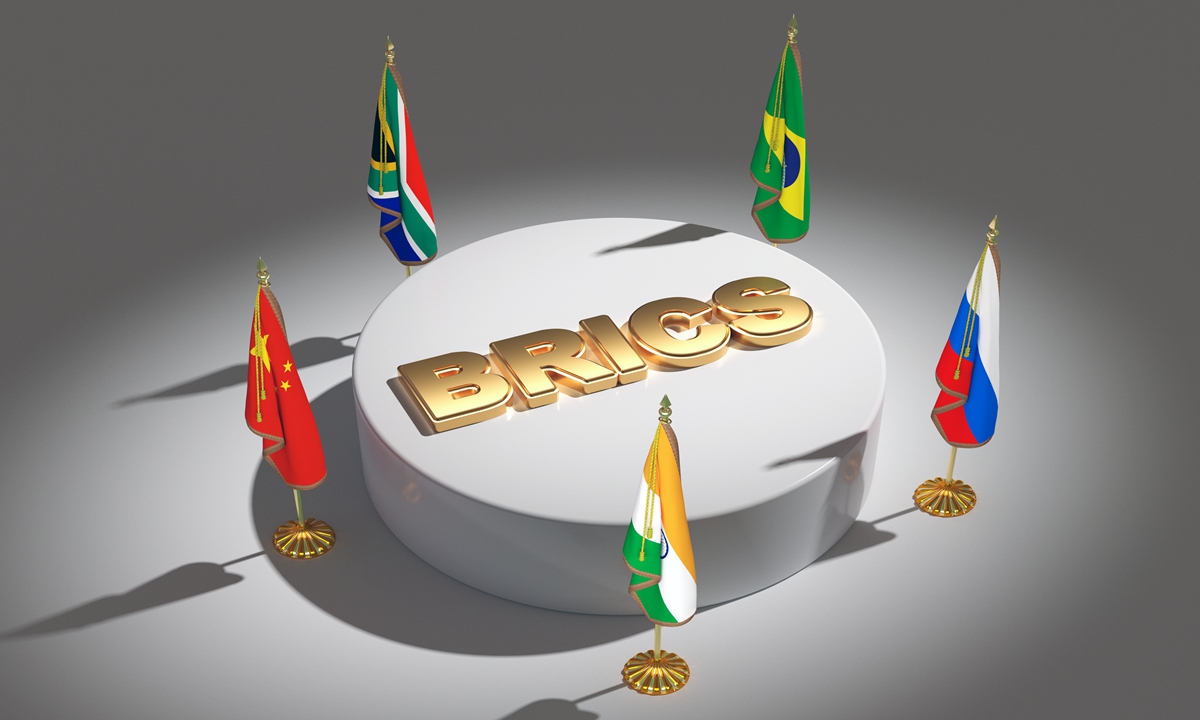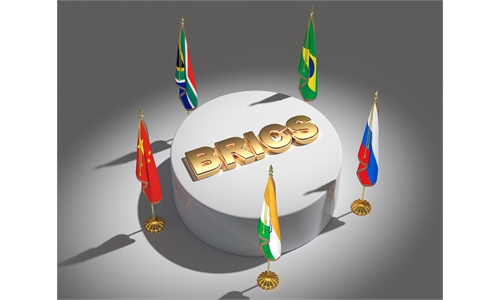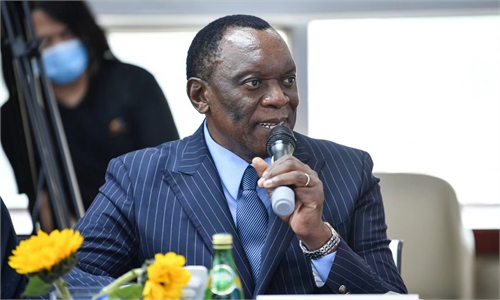
BRICS File photo: VCG
Editor's Note:In the last decade the BRICS grouping of major emerging economies - Brazil, Russia, India, China, and South Africa - has become one of the most fundamental forces in the international geo-economic landscape. A new edition of the BRICS Summit took place on Thursday, where leaders of BRICS countries met virtually to discuss the current global situation. What's the significance of BRICS cooperation for today's world? Global Times collected views from several experts.
Carlos Martinez, a British author and independent political commentator.
In addition to being large countries in terms of population, land mass and economic activity, the BRICS countries to a certain extent represent wide geographical regions. With China actively supporting both the expansion of BRICS and the development of "BRICS Plus," the BRICS family is set to become an indispensable forum for the collective interests of developing and emerging countries.
The historic mission of BRICS is essentially to consolidate, defend and expand a multipolar international order, based on international law and the United Nations, and overcome centuries of underdevelopment and entrenched inequality between the Global North and Global South.
The 14th BRICS Summit can be expected to carry these themes forward, to contribute to the construction of a fair, democratic and multipolar system of international relations and to forcefully represent the voice of the developing and emerging countries on the crucial questions facing humanity.
Santiago Bustelo, served as parliamentary Advisor to the National Chamber of Deputies of the Argentine Republic and Research Coordinator at the China-Brazil Business Council
The present context is characterized by enormous possibilities and opportunities that are typical of times of crisis and paradigm shifts. Creativity and use of windows of opportunity can potentially give rise to new scenarios for emerging countries in the global system. It is up to developing nations themselves to be proactive and establish a common strategy that takes advantage of the transforming trends that are appearing in the new international geopolitical and economic architecture. Having reached a considerable degree of institutionalization as well as establishing new multilateral organizations such as the NDB, the BRICS may become in the coming years the platform for developing countries to have greater weight in decisions about the destinies of humanity.
Huang Renwei,executive vice dean of Fudan Institute of Belt and Road & Global Governance
The basic trend of BRICS countries participating in global economic governance is to carry out reforms while maintaining the stability of old governance mechanisms, and build a new governance mechanism according to new objective requirements.
The construction of a new global governance system will be carried out across four levels: the UN system, the G20, BRICS Plus, and regional mechanisms. Among them, the UN system will transform from the post-World War II governance mechanism of great powers to the global governance system of the 21st century. Climate change and public health have become urgent governance issues. The G20, the main body of the global macroeconomic coordination mechanism jointly carried out by developed and emerging economies, was prominent during the 2008 financial crisis. In the face of new global inflation and supply chain problems, its institutionalization must continue to advance. "BRICS Plus" is the development and innovation of BRICS countries, and is a group of emerging powers that is establishing, adding new impetus to the reform of the global governance mechanism.
No matter how big the obstacles and crises are, the BRICS countries will not stop striving to establish a more equitable and rational global governance environment. Maintain existing development momentum, seize the rare historical opportunity, and enhance the global governance capacity and share of voice. This year's BRICS summit has displayed the potential of a new future.
Swaran Singh, a Visiting Professor, University of British Columbia and Fellow, Canadian Global Affairs Institute (Canada) and Professor of Jawaharlal Nehru University, India
BRICS nations are known for their technocratic focus. This has resulted in piecemeal building of credibility reflected in their debates on creating an independent Credit Rating Agency as also in their initiatives like the Currency Reserves Arrangement and now nine-member New Development Bank which has already disbursed more than $15 billion and completed and/or sanctioned support for hundreds of projects. The bank now has regional offices in South Africa and India and its style of functioning has pushed Bretton Woods institutions into structural reforms.
Jorge Heine, a research professor at the Pardee School of Global Studies, Boston University, a Wilson Center global fellow and a former Chilean ambassador to China
In fact, in many ways the BRICS are emblematic of the New South that has emerged in the past two decades, very different from the old Third World of yesteryear. Their rise is closely associated with and is part of what the World Bank has referred to as the "Wealth Shift" from the North Atlantic to the Asia-Pacific, and the rise of South-South trade and investment flows to unprecedented levels.
At the turn of the 20th century, Argentina was among the Top Five richest countries in the world. This was made possible by its association with Great Britain, in those days the world's hegemon, and a country that provided an ample market for Argentine beef, wool and grains. Yet, the 20th century was not kind to Argentina, and the country has endured many ups and downs since its glory days, including several sovereign defaults. It is thus telling that in 2022 Argentina sees its future not in Old Europe or in the North Atlantic, but in the New South, embodied in the BRICS, and whose core is in the Asia-Pacific.



